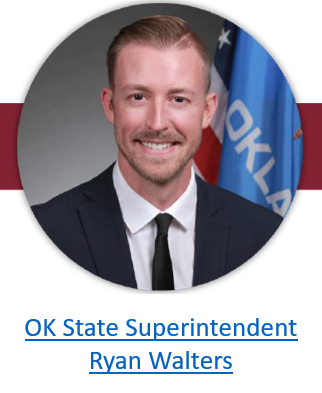Shuttering the Department of Education: Will it Happen?
The expressed intent of the incoming Trump Administration to eliminate the U.S. Department of Education (DOE) reflects the 2024 Republican Party Platform, which states in part: “We are going to close the Department of Education in Washington, D.C. and send it back to the States, where it belongs, and let the States run our educational system as it should be run.”
The vitriol unleashed by the Left following Trump’s impressive electoral and popular vote victory includes belittling his plans to shutter the DOE. Former Obama Administration education secretary, Arne Duncan, told CNN and repeated on The Hill.com that Trump’s pledge is never going to happen. “That’s just another empty, broken promise,” Duncan said. “Whether his supporters hold him accountable for that, I don’t know.”
According to a report by ABC News, closing the department could leave the issue of federal grants, scholarships, and other funds “hanging in the balance for the millions of K-12 and college students attending schools in the U.S.” In an article on the NPR website, Brookings Institution director of education policy, Jon Valant, admitted that the U.S. Constitution “doesn’t say anything about schools or about education, and it kicks all of that work to the states.” He allowed that “over time the federal government has come to play some really important roles, but he failed to note that those roles are likely to be unconstitutional. Instead, he maintained that they protect the civil rights of students, disburse Title I funds for low-income and disabled students, while “collecting data on schools and administering federal student loans for higher education.”
Valant claimed the DOE does not tell schools what to do or define curriculum, a claim some conservatives might dispute given the many failed policies that have trickled down from the federal government.
A November 20 article on Axios opined that the DOE “plays a crucial role in making education access and quality more equitable for students nationwide.” While critics might dispute this assertion as well, it has been a common sentiment expressed recently in the mainstream media.
 Axios further stated: “The Department of Education has been a punching bag for Republicans for decades. Ronald Reagan threatened to abolish it, and many inside the GOP have echoed Trump’s calls for its end.” Nevertheless, the article concedes that shuttering the department is “not impossible,” but predicts there will be a “narrow political pathway” for the new president to do so.
Axios further stated: “The Department of Education has been a punching bag for Republicans for decades. Ronald Reagan threatened to abolish it, and many inside the GOP have echoed Trump’s calls for its end.” Nevertheless, the article concedes that shuttering the department is “not impossible,” but predicts there will be a “narrow political pathway” for the new president to do so.
Another topic for speculation is what effect the proposed closure of the DOE may have on the teachers’ unions. Presumably it may be significant. The NEA has not yet commented on the subject publicly on its website, but it did predictably lament the Trump landslide and the many down-ballot Republican victories of November 5. The NEA gave the president-elect’s nominee for education secretary, Linda McMahon, the title “DeVos 2.0,” in a snide reference to Trump’s 2016 choice of Betsy DeVos for that position.
To the surprise of exactly no one, the NEA has already vowed to oppose McMahon’s confirmation, claiming that she “is not qualified for the position,” that she will push “an extremist agenda” and that she will be “a rubber stamp for Donald Trump.”
Using the NEA’s moniker for McMahon, Politico noted that she has a business background, except for serving “a year-long stint on the Connecticut Board of Education,” and that her views on educational issues are largely unknown. “Her nomination would install a Trump loyalist into the position, who, unlike some of the president-elect’s other nominees, could sail through a Senate nomination.” The article added that McMahon headed the Small Business Administration during Trump’s first term “after a landslide bipartisan confirmation vote.”
Politico observed that some Republicans are embracing the NEA’s connection of McMahon to DeVos. Former Trump education department official Jim Blew said: “If being Betsy DeVos 2.0 means being a great manager and advocating for the interests of children and taxpayers, then I would agree with them.” Blew is co-founder of the nonprofit Defense of Freedom Institute, which states that its mission is “to defend and advance freedom and opportunity for every American family, student, entrepreneur, and worker and to protect our civil and constitutional rights at school and work.”
In support of closing the DOE
Whether or not the U.S. Department of Education is ultimately disbanded, supporters of such a move are enthusiastic and vociferous. Education activist, teacher, and author, Rebecca Friedrichs, wrote in a Fox News op-ed: “President-elect Trump is exactly right to remove the federal government from our educational system. This is one giant step toward restoring parental authority and excellence in our schools.” (Read her article in its entirety in this month’s Be Our Guest—Ed.)
 Oklahoma’s Superintendent of Public Instruction, Ryan Walters, an outspoken champion of traditional education, applauded Trump’s intention to close the DOE on both CNN and The Daily Beast.com. “President Trump is going to fulfill his promise to get rid of the federal Department of Education and focus on free market principles in education,” he said. “People forget [that] this country, the greatest country in the history of the world, was built without a federal Department of Education.”
Oklahoma’s Superintendent of Public Instruction, Ryan Walters, an outspoken champion of traditional education, applauded Trump’s intention to close the DOE on both CNN and The Daily Beast.com. “President Trump is going to fulfill his promise to get rid of the federal Department of Education and focus on free market principles in education,” he said. “People forget [that] this country, the greatest country in the history of the world, was built without a federal Department of Education.”
Walters stated the obvious when he pointed out that “every educational statistic has gotten worse” since Jimmy Carter created the department. “President Trump’s 1000 percent right,” he said. We have got to get education back to the states. States have to give education back to the families.”
The Washington Stand posited that “Trump’s allies believe the 47th president will be the man to follow through” with closing the DOE and sending all education work and needs back to the states. The article quoted Superintendent Walters as saying he has already “tasked a state advisory panel to guide the transition of educational authority from the national to the state level when the Trump administration closes the DOE.” The panel will help “put together recommendations for the state moving forward. When the federal Department of Education is gone, how can we direct those dollars? How can we make sure that families know about the options available?”
Walters said Oklahoma “is also rewriting [its] history standards. We want to make sure we are pro-patriotism, pro-America,” and that we highlight “the role faith played in our country’s history.... We’ve also eliminated CRT, any kind of diversity, equity, and inclusion in our schools,” and have instituted “merit pay” for teachers.
The Cato Institute’s education analyst, Neal McCluskey, told ABC News that “dismantling the department could be as simple as giving states the funding, but allowing them to decide how it’s administered.” He explained that the federal government could take all the K-12, Title I, IDEA (Individuals with Disabilities Education Act) dollars and “block grant” them; in other words, give them to the states to decide how they are to be administered.
In the end, eliminating the DOE will require congressional action. While Republicans will have a majority in both houses in January, it remains to be seen if all will agree with the Trump Administration that the DOE should be shuttered, and whether or not a supermajority will be required in the Senate. Time will tell.
Want to be notified of new
Education Reporter content?
Your information will NOT be sold or shared and will ONLY be used to notify you of new content.
Click Here
Return to Home Page
